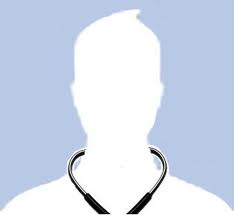By Oyedeji Aderemi
There are duplicity of roles, improper accountability and unequal distribution of the healthcare, all stemming from the aforementioned problems. It’s obvious we are trying to build our healthcare system on the tertiary institutions, which means we are roofing the house before laying the foundation.
If Health is Wealth we are indeed a poor country
Roemer (1991) defined a health system as “the combination of resources, organization, financing and management that culminates in the delivery of health services to the population.”2
WHO defined Health system as, all activities whose primary purpose is to promote, restore, and maintain health.
A health system has three overarching goals:
- Maintain or improve people’s health;
- Aim to provide services that respond to legitimate public expectations (both medical and non-medical); and
- Ensure all households receive a fair share of public services and are protected equally from financial risk.
Here we are at the close of the 21st century and the Nigerian healthcare system is still almost non-existent. There are many factors attributable to this problem but taking a closer look it’s obvious it’s the impaired clarity of mind of the government that has placed the healthcare system in such doldrums, putting square pegs in round holes. The new health bill in the works also places most of the health delivery burden on the yet to be concretized shoulders of the Nigerian Primary healthcare development agency.
Taking a look at the Nigerian healthcare system as it is designed brings up many issues such as: funding, who controls what at what level, what is the role of the federal government, state government and the local government? How do the various non-governmental organizations fit into the whole healthcare delivery? The State governments who ought to be in charge of 2nd level of healthcare delivery are foraying into tertiary level of healthcare delivery, totally obliterating the 2nd level of healthcare delivery, the state government also are the ones to disburse funds for the local governments to run the- bed-rock of any healthcare delivery system- primary healthcare delivery.
There are duplicity of roles, improper accountability and unequal distribution of the healthcare, all stemming from the aforementioned problems. It’s obvious we are trying to build our healthcare system on the tertiary institutions, which means we are roofing the house before laying the foundation.
The definition of primary healthcare delivery in Nigeria has been reduced to the healthcare delivered by CHEW’s and Nurses and occasionally, that corper Doctor who is posted to that locality for a period of one year, whose training has not fully equipped him in delivering primary healthcare. Reading through the health bill I do not see the place of a doctor as part of the workforce in primary healthcare delivery. It goes to say that, we are still not ready to strengthen the system as it were. Neither are we ready to reduce the burden at the tertiary level, which will go a long way to cut down overhead costs.
While the role been foisted on NPHCDA is in theory a good idea as it will help knock out the multiplicity of funds and allow more accountability in the system, the fear is that politicizing the office of the DG will take eyes away from the Ministry of health, since bulk of the money will be disbursed by NPHCDA. We know that where the money is, is where the politicians will want to control and as such the plan will be derailed.
When we take a look at the aforementioned goals of the healthcare system, it is clear that Nigeria’s healthcare system does not meet these. My submission therefore is that, we go back to the drawing board and start building from the scratch our health system if the generations unborn are to have a future!
References:
- Health Systems 20/20. Dec, 2010. Health Systems Report: Nigeria. Bethesda, MD: Health Systems 20/20 project, Abt Associates Inc. http://healthsystems2020.healthsystemsdatabase.org
- Healthy Development The World Bank Strategy for HNP Results Annex L─April 24, 2007
- An assessment of interactions between global health initiatives and country health systems Lancet 2009; 373: 2137–69
- WHO. The world health report 2007–a safer future: global public health security in the 21st century. Geneva: World Health Organization, 2007.

[…] Aderemi brilliantly evaluates the new strategy of reforming the primary health care delivery system in his Doctor’s Note column. It is not good news. There is so much wrong with the entire […]